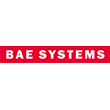Freight forwarder
Freight forwarders are agents who act on behalf of importers, exporters or other companies to organise the safe, efficient and cost-effective transportation of goods
As a freight forwarder, you'll use computer systems to arrange the best means of transport, according to the type of goods and the customer's delivery requirements.
You'll organise shipments through an established network of contacts, using the services of shipping lines, airlines and road and rail freight operators. In some cases, the freight forwarding company itself provides the service, but this is not typical.
Companies vary in size and type, from those operating on a national and international basis, to smaller more specialised firms dealing with particular goods or operating within designated geographical areas.
Responsibilities
As a freight forwarder, you'll need to:
- investigate and plan the most appropriate route for a shipment, taking into account the perishable or hazardous nature of goods, cost, transit time and security
- arrange appropriate packing, taking into account the climate, terrain, weight, cost and nature of goods and also the delivery and warehousing of goods at their final destination
- negotiate contracts, transportation and handling costs
- obtain, check and prepare documentation to meet customs and insurance requirements, packing specifications, and compliance with other countries' regulations and fiscal regimes
- offer consolidation services by air, sea and road, ensuring cost-effective and secure solutions to small shippers who have insufficient cargo to require their own dedicated units
- arrange insurance and assist the client in the event of a claim
- offer tailored IT solutions and electronic data interchange (EDI) connections
- arrange payment of freight and other charges or collection of payment on behalf of the client
- utilise e-commerce, internet technology and satellite systems to enable real-time tracking of goods
- arrange air transport for urgent and high-value freight and manage the risk door-to-door
- act as a broker in customs negotiations worldwide to guide the freight efficiently through complex procedures
- deal with special arrangements for transporting delicate cargoes, such as livestock, food and medical supplies
- arrange courier and specialist hand-carry services
- maintain communication and control through all phases of the journey, including the production of management reports and statistical and unit-cost analysis
- maintain current knowledge of relevant legislation, political situations and other factors that could affect the movement of freight
- manage staff or oversee specialist activities - usually at a senior level.
Salary
- Entry-level salaries for freight forwarders often start at around £25,000 but can be as low as £15,000 to £20,000.
- With three or more years' experience, working at a middle management level, you'll earn in the region of £27,000 to £35,000.
- Senior freight forwarders with over 10 years’ experience can earn over £40,000.
Employers may also offer additional benefits such as a bonus scheme, company car and pension scheme.
Income figures are intended as a guide only.
Working hours
Working hours are typically 35 to 40 hours per week. You may be required to do some shift work as some large freight forwarders provide cover 24-hours per day, 365-days per year.
Flexible working is sometimes required to cover clients' needs.
What to expect
- The work is mainly office based. Opportunities tend to be concentrated in transport centres, such as ports, airports and rail terminals and along major road networks. Offices are usually situated close to industrial areas, with London, the north-west, the midlands, the south-east and Scotland being the main centres in the UK.
- Self-employment or freelance work (including consultancy) is possible once you've gained significant experience. There are many small single-office firms dealing with clients in local and niche areas with a particular type of commodity or form of transport.
- The dress code is normally smart as you may be meeting clients, but business casual is acceptable in the office.
- The working environment can be stressful, as much of the work is aimed at meeting tight delivery deadlines.
- Travel within the working day and absence from home overnight are rare, but in larger firms, there may be opportunities to travel or work overseas. Being able to speak a foreign language is an advantage.
Qualifications
A degree is not essential for a career in freight forwarding, but it can help to have one in any of the following subjects:
- logistics
- supply chain management
- transport planning
- business management
- economics.
If you have a degree, it may enable you to enter at a higher level or join one of the graduate training schemes offered by some of the larger employers.
An HND in one of the above subjects can also be useful.
A postgraduate qualification is not required for entry, but it can be useful for career progression, especially for reaching management positions. Relevant Masters courses are available in subjects such as logistics and supply chain management, and a qualification such as this may help you to enter at a higher level. Search postgraduate courses in logistics and supply chain management.
You may benefit from joining relevant professional bodies as these can help you to keep up to date with news in the industry and to make useful contacts. Student membership is available with The Chartered Institute of Logistics and Transport (CILT), which provides access to useful resources and allows you to work up the membership grades once you are in employment.
Skills
You'll need to have:
- communication skills, as you'll be liaising with a variety of people
- clarity in communication, as major problems could arise through inaccuracies
- organisational and planning skills
- teamwork, tact and good interpersonal skills
- sensitivity to culture and religion
- good geographical knowledge
- sound industry knowledge
- flexibility and the ability to adapt to changing circumstances
- problem-solving ability, particularly when working under pressure
- accuracy and attention to detail
- numeracy and computer literacy
- language skills - are not essential but can be useful if there is a focus on a particular region or country, and you’re more likely to be offered opportunities to work abroad if you have them.
Work experience
Employers value pre-entry experience. However, the experience doesn't have to be in freight forwarding as other relevant areas can provide you with the required skills. This includes work that involves customer service, IT or planning skills, as well as general office work.
You could gain this type of experience through part-time or casual work, or you could arrange work experience or work shadowing with a relevant company.
Find out more about the different kinds of work experience and internships that are available.
Advertisement
Employers
Most freight is handled by 3PL (third-party logistics) firms, rather than by individual companies running their own logistics departments.
The 3PL firms typically fall into one of these groups:
- local companies - these are generally small, single-office firms dealing with clients in their immediate local area or operating at a seaport or airport and concentrating on particular types of traffic.
- national companies - many forwarders have offices in major ports and airports throughout the country as well as in the largest industrial towns. They may also have warehousing or handling depots. Such companies often have agents or correspondents overseas in the markets in which they trade.
- international companies - global companies have their own offices overseas and offer a range of worldwide services.
As well as handling freight, many 3PL firms offer an extended range of services, including:
- packaging and goods assembly
- order picking
- sorting
- warehousing.
For a full list of trade members, which can be useful for identifying employers, see the British International Freight Association (BIFA).
Look for job vacancies at:
Vacancies are also handled by specialist recruitment agencies, such as Freight Personnel.
Professional development
Some larger companies offer graduate training schemes. You'll typically spend two years working in different departments to get to know the whole business. As well as building up experience you will often study for relevant professional qualifications during this time.
If you work for a smaller company the training may be less structured. It will usually include an induction process followed by on-the-job training.
The training provision varies considerably between companies, so research carefully when job seeking.
External courses are available in related areas, with many leading to professional qualifications.
For example, the CILT UK provides the following qualifications:
- Level 3 Certificate in Logistics and Transport - provides a solid foundation of understanding logistics and transport systems. A suitable course for those starting out in a career in these fields.
- Level 5 Professional Diploma in Logistics and Transport – aimed at those who want to enhance their existing expertise and develop core management skills.
- Level 6 Advanced Diploma in Logistics and Transport – develops strategic management skills for senior professionals and those aspiring to strategic leadership roles.
Find out more about available qualifications at CILT - Qualifications Available for Freight Forwarding.
BIFA delivers training courses on freight forwarding procedures, including export and imports for beginners, air cargo security and the basics of sea freight.
If you’re involved in the import and export of goods, the Level 4 and Level 5 Diploma in International Trade, run by the Chartered Institute of Export & International Trade, may be relevant.
Relevant Masters courses in logistics and supply chain management are available and some employers may be able to help fund these.
Career prospects
Progression is often to the level of senior freight forwarder or senior export administrator, followed by export office manager or shipping manager.
Some large export or import companies have their own freight forwarding staff. Career progression in such companies is likely to be limited due to the small size of the departments, and you may need to move employers to progress further.
Gaining vocational and professional qualifications will help your career development, as will becoming a member of a professional body. The CILT lists several relevant professional bodies and trade associations on its website.
Chartered membership of CILT is particularly useful too, and the three routes to this are detailed on its website. To achieve chartership you can:
- complete an accredited degree and at least four years' experience in the profession
- gain the relevant Level 6 qualification or the CILT Advanced Diploma and complete at least five years in the profession
- apply to become chartered by accruing at least seven years' experience in the profession - a suitable option for those without a relevant degree.
In each instance, your work experience must include two years at senior level.
In addition to the skills and knowledge you develop in supply chain management and warehouse and logistics management, you'll also develop other skills that are highly valuable to employers in other sectors. For example, in business risk management, insurance, quality, IT, sales and security.
This can open up opportunities in areas such as:
- the entertainment and sports industry, including transportation of film and concert sets, racing cars and sports equipment
- heavy industries, including aerospace, power generation and ship components manufacture
- automotive industries, including car and parts manufacture
- manufacturing
- trading companies, dealing with imports and exports.
Alternative careers
Related jobs and courses



graduate scheme
Freight Operations Graduate
- DHL Global Forwarding
- Competitive salary
- Hayes, Staines-upon-Thames

apprenticeship
Logistics Degree Apprenticeship Programme - Dartford / Erith
- ASDA (6 other jobs)
- Competitive salary
- Dartford

